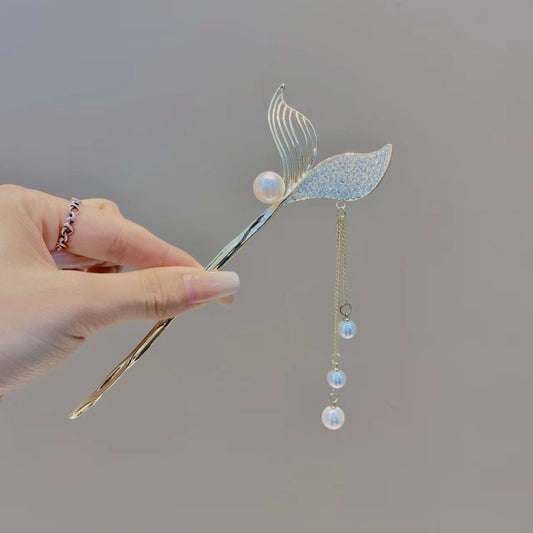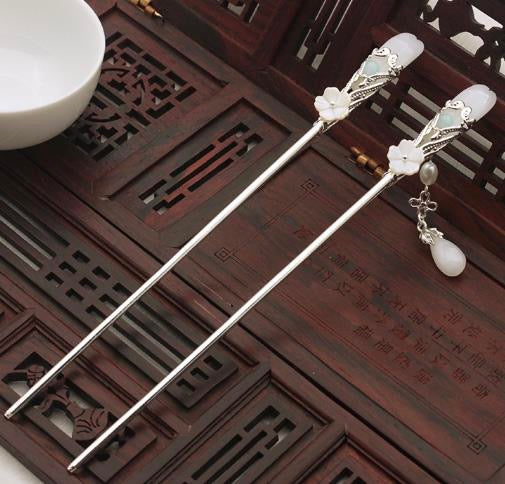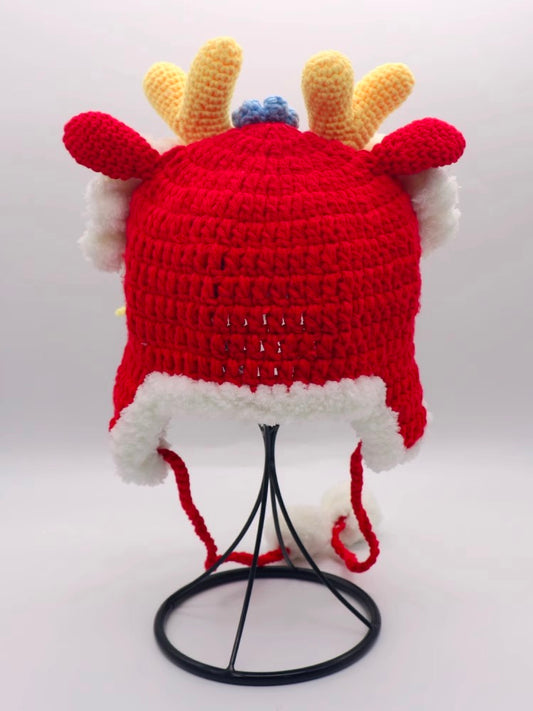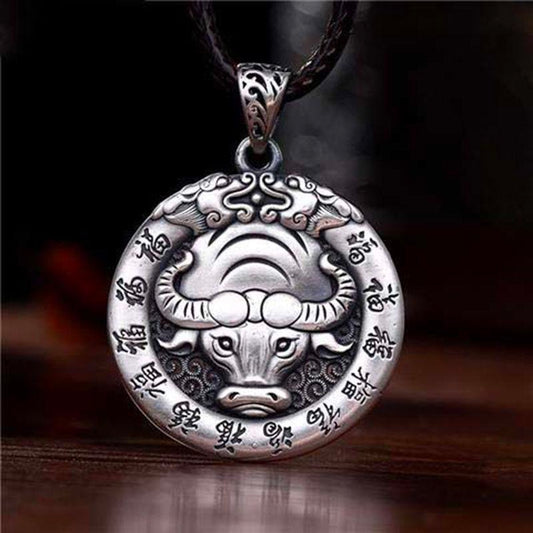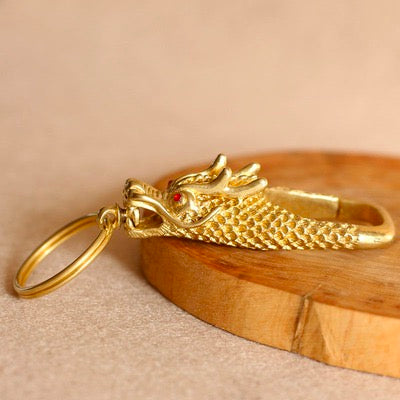In traditional Chinese culture, Pixiu, as a auspicious divine beast, has been endowed with magical powers to attract wealth and wealth, ward off evil and transform evil spirits since ancient times. With the development of modern jewelry craftsmanship, the image of Pixiu has been made into various accessories. However, a seemingly simple question that raises many questions arises: can wearing Pixiu accessories enter the bathroom? Behind this question, it may seem inexplicable at first glance, but it reflects the collision between traditional cultural beliefs and modern life practices, which is worth exploring in depth.
The cultural origins and symbolic significance of Pixiu
Before delving into the topic, let's first understand that "Pixiu", also known as "warding off evil" or "Tianlu", is a mythical creature in ancient Chinese mythology. It resembles a lion and has wings, and is said to be one of the nine sons of the dragon. Its biggest feature is that it has an mouth but no anus, symbolizing "only entering but not exiting", so it is revered by merchants as a symbol of attracting wealth. There are records about Pixiu in the Records of the Grand Historian, and emperors throughout history have often used the image of Pixiu on their official attire and seals to show their dignity and authority.
Traditional Feng Shui believes that Pixiu has strong spiritual power, which can absorb wealth and energy from all directions for its owner, while also resisting negative external energy. Therefore, when wearing Pixiu jewelry, many taboos are often emphasized, such as not allowing outsiders to touch it and requiring regular purification to maintain its spirituality from contamination. This reverence for sacred objects forms the cultural basis for the question of whether Pixiu can enter the toilet.

The psychological roots of toilet culture and traditional taboos
In traditional Chinese culture, toilets are considered dirty places, a concept that can be traced back to the limited sanitary conditions in ancient times. There are often records in ancient literature about unclean toilets, such as the "Zhou Li" which stipulates that toilets should be kept away from residential areas. The concept of cleanliness in Taoism and Buddhism further strengthens this understanding, linking toilets with negative concepts such as "bad luck" and "filth".
From a psychological perspective, this phenomenon of stigmatizing toilets reflects human instinctual shame and isolation needs towards excretory behavior. French sociologist Elias pointed out in "The Process of Civilization" that the process of privacy and concealment of excretory behavior in modern society is one of the manifestations of civilization development. Therefore, isolating sacred items from toilet spaces is essentially a cultural and psychological defense mechanism.

Analysis of Multiple Perspectives on Pixiu Entering the Toilet
Regarding the question of whether it is possible to wear a Pixiu bracelet to the bathroom, different groups hold different opinions:
Traditional Feng Shui practitioners hold a negative attitude, believing that the polluted air in toilets can contaminate the spiritual power of Pixiu, leading to damage to its wealth seeking function. It is recommended to remove or at least turn the bracelet inward before using the restroom to avoid direct exposure.
Modern wearer practice: divided into two factions. Conservatives follow traditional taboos and must pick it before using the restroom; The enlightened faction believes that modern toilets are highly clean and sincere, and there is no need to be overly formal.
Cultural scholars interpret that this is an adjustment issue in the process of modernizing traditional culture. With the improvement of toilet environment, its cultural symbolic significance has changed, and corresponding taboos should also be reinterpreted.
Jewelry craftsman's opinion: From the perspective of material maintenance, it is reminded that certain materials (such as silver jewelry) may oxidize after long-term exposure to humid air in the bathroom, but it is not related to Pixiu spirit power.

Rational Thinking and Practical Suggestions in Modern Context
In contemporary society, the examination of this issue should balance cultural respect with practical feasibility:
On the cultural belief level: If the wearer sincerely believes in the spirit power of Pixiu, they should follow relevant taboos, which is a respect for their own beliefs. Psychological research shows that a sense of ritual can enhance the effect of psychological suggestion, so following tradition may strengthen the psychological utility of Pixiu.
On the practical level of hygiene: Modern flush toilets are no longer the dirty places of ancient times. From a hygiene perspective, wearing bracelets to use the toilet does not pose any substantial obstacles. However, it is important to keep hands clean when using the restroom to prevent bacteria from accumulating on the surface of the bracelet.
Material maintenance aspect: Take appropriate protective measures based on the characteristics of the bracelet material. Jade Pixiu should avoid long-term exposure to chemicals, while silver Pixiu should pay attention to moisture prevention.
Compromise solution: "Symbolic protection" measures can be taken, such as turning the bracelet towards the inside of the wrist when using the toilet, which not only meets psychological needs but also does not affect actual use. Or choose more everyday designed Pixiu accessories to downplay their religious artifact attributes.

The Modern Transformation of Cultural Symbols and Personal Choices
The evolution of Pixiu from a religious artifact to a fashionable accessory reflects the survival strategy of traditional cultural symbols in modern society. With the process of dispelling the sanctity of objects, many traditional taboos are being reinterpreted. Taiwanese scholars have found that the younger generation wears Pixiu more out of cultural identity rather than religious devotion, and their adherence to related taboos is also more flexible.
This phenomenon raises a deeper question: how should we treat traditional culture in a rapidly changing era? Completely abandoning it may lead to cultural roots, while being overly rigid may lead to detachment from reality. Perhaps finding a balance between the sacred and the secular is a wise move - understanding the cultural logic behind taboos while making appropriate adjustments based on current conditions.

Conclusion: Finding a balance between respect and practicality
Returning to the original question - can I wear Pixiu accessories to the bathroom? The answer is not absolute. From the perspective of cultural anthropology, the significance of taboos often lies not in the behavior itself, but in the social identity and psychological security they can maintain. Therefore, what is important is not whether the external behavior conforms to norms, but what the meaning of this behavior is to the wearer.
For devout believers, following traditional taboos is a spiritual need; For wearers who consider Pixiu as a cultural symbol, it can be flexibly handled according to the actual situation. No matter what choice we make, understanding the cultural context behind this controversy helps us make more autonomous judgments. Ultimately, the vitality of traditional culture lies not in rigid dogma, but in its ability to provide spiritual comfort and cultural identity for modern people - this is the true inspiration given to us by the "Pixiu Going to the Toilet" debate.







